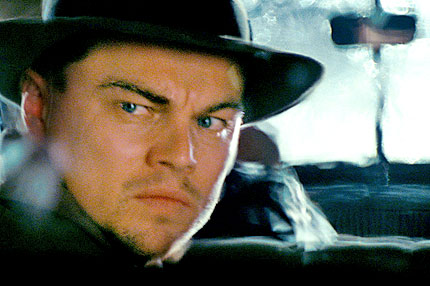Four years after The Departed, Martin Scorsese returns to Massachusetts — and to his favorite leading man. Here, it’s 1954, and the director ferries DiCaprio through Boston Harbor to a prison reminiscent of Alcatraz, but with crazier patients and nastier weather.
He also burdens him with material so over the top that it makes the rat scampering at the end of his Oscar-winning 2006 film look positively restrained. The star plays Deputy Marshal Teddy Daniels as if conducting a test: Is it possible to read clichés with nuance?
Accompanied by a new partner (Ruffalo, smirking beneath a fedora), Teddy is investigating the escape of a murderess, but his real mission is to confront the man who killed his wife, and he describes his methodology in the dullest way possible: “It’s not exactly by the book.”
During a storm that forces the pair to stay overnight, flashes of white lightning strike every time prison administrators say potentially sinister things. Eventually, Teddy starts to think he’s either being dosed or going mad. At one anguished moment, the camera pulls back from a closeup to a bird’s-eye view as he throws his head back to scream, “Nooooo!”
Yes, the man-made Shutter Island (based on the novel by Dennis Lehane) is built on pulp landfill, but purposefully so, with Scorsese using the twist ending to riff on the very power of elaborate fantasy. Those lightning bolts aren’t a pointless homage to Rocky Horror gimmickry: They’re chances to play with light itself and smuggle experimental filmmaking into the multiplex. The movie’s centerpiece — a long, sublime, flashback sequence — somewhat justifies the whole berserk affair.
Still, the director has taken on too much by simultaneously investigating Cold War paranoia, concentration camps, and religious dogma. But as the ominous waves break against the rocky shore, you realize that the tasty sea salt enhances this ball of corn.
WATCH: Shutter Island trailer





